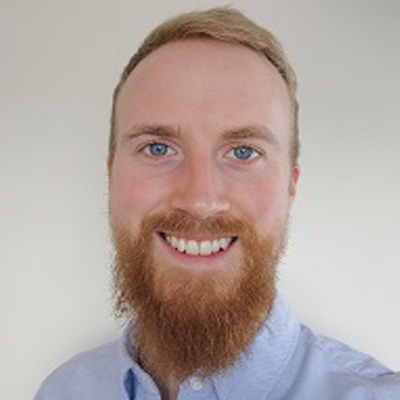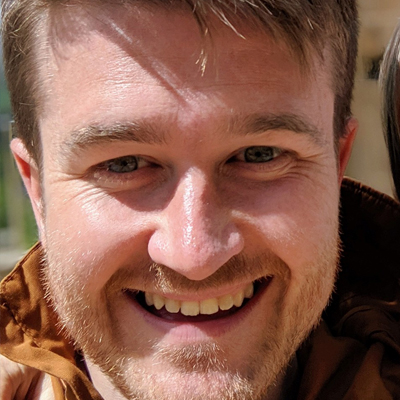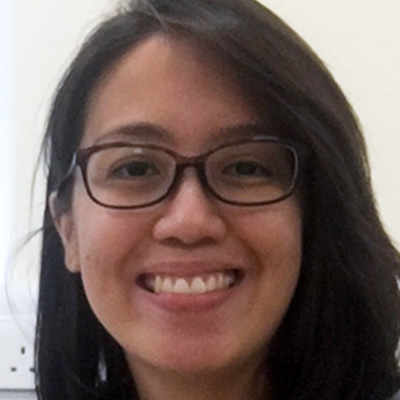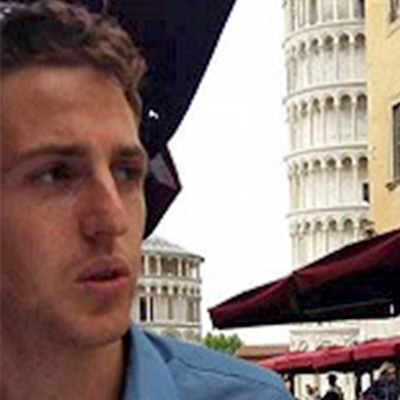
Tom Bayley
In 2015 Tom graduated from the University of Warwick with an MMath degree. During his degree he specialised in mathematical modelling and statistics, and took a particular interest in modelling of biological systems and processes.
In 2015 Tom graduated from the University of Warwick with an MMath degree. During his degree he specialised in mathematical modelling and statistics, and took a particular interest in modelling of biological systems and processes. For his Masters project he explored a stochastic model of Malaria spread. Alongside his degree he also spent time at the Anthony Nolan institute investigating geographic trends in the genetic data stored in their database of donors.
During the first year of the Wellcome Trust programme, Tom was exposed to a wide range of topics within Public Health and Health Economics via both taught modules and research attachments. In particular, he completed taught modules in Sociology of Health and Illness, Economic Evaluation, Key Issues in Global Public Health, and Contemporary Health Psychology and Behaviour Change. Tom’s year one research attachments investigated using simulation modelling to assess consistency of outputs to incorporate aversion to health inequalities, the effect of parenthood on drinking habits, and agent-based modelling of obesity dynamics within an obesogenic system. Tom’s experiences on these modules and research attachments has shaped the development of his PhD.
Title of PhD
The relationship between obesity and depression and the influence of socioeconomic position.
Supervisors
Mark Strong, Sam Caton, Paul Bissell
Tom’s research interests lie in exploring the interaction between physical and mental health as well as how these are both affected by the wider determinants of health. In particular, in his PhD he is interested in researching the complicated and complex relationships that exist between obesity, depression and socio-economic position. To do this, he is using both Structural Equation Modelling and Agent-based modelling techniques. Specifically, he is building a Structural Equation Model to explore the mediating mechanisms that might exist between obesity and depression, and whether socio-economic position interacts with these mechanisms. Within his agent-based model he is exploring whether stigmatisation might generate socio-economic inequalities in obesity and depression.
Supplementary to Tom’s research project the Wellcome Trust DTC has also cultivated an interest in the use of research for public policy, as well as a greater interest in the development and implementation of Public policy more generally.
To has presented at the British Psychological Society Annual Conference 2019 on How does stigma generate socio-economic inequality in obesity and depression: an agent-based modelling study.

Sarah Bates
Sarah completed a Psychology degree at the University of Surrey in 2012 and a MSc in health psychology at King’s College London in 2015.
Sarah completed a Psychology degree at the University of Surrey in 2012 and a MSc in health psychology at King’s College London in 2015. Between studying she has worked as a research assistant on a range of clinical trials relating to diabetes, cardiovascular disease, lung disease and dissociative seizures. Sarah’s research interests are health behaviour change, public health economic modelling and determinants of weight loss maintenance. She is also interested in how psychological theory can inform health economic evaluations.
In her first year, Sarah undertook research attachments looking at public support for public health policies, the relationship between diet and other health behaviours, and the causal relationship between wellbeing and health behaviour. She completed modules in Economic Evaluation, Cost-effectiveness Modelling, Advanced Simulation Methods, Valuing the Benefits of Health Care, and Medical Statistics and Evidence Synthesis.
Title of PhD
The Feasibility of Including Psychological Factors in Health Economic Models of Obesity.
Supervisors
Alan Brennan, Paul Norman, Penny Breeze
Sarah is examining the psychosocial factors associated with weight trajectories during and after a weight-management intervention and investigating the impact of including relevant psychological factors within a health economic model of obesity on estimates of cost-effectiveness.
Sarah has received training in Decision Modelling using R, Structural equation modelling in mplus, Latent growth curve modelling in mplus, and Laying the foundations for effective writing. She has also presented a poster at the Lancet Public Health conference.
Sarah has published the following paper:
“The programme provides so many opportunities alongside continued support and encouragement from developing a research idea to carrying out the research. Since starting the programme I’ve had the opportunity to learn a new discipline, practice research skills, present at conferences and gain teaching experience. I’ve met decision makers from a range of organisations, been able to collaborate with a team at another university and completed an internship abroad to gain a different perspective on my research area”.

Simon MacNamara
Simon’s work is primarily focused on inequalities in health, and, in particular, the way in which inequalities are captured within economic evaluation in health.
Simon’s work is primarily focused on inequalities in health, and, in particular, the way in which inequalities are captured within economic evaluation in health. Prior to joining Sheffield, Simon spent six years working as a Health Economist within the pharmaceutical industry. He holds an MSc in Behavioural Science from the London School of Economics and Political Science, an MSc in Health Economics from the University of York, and a BSc in Economics from the University of York. Simon’s research interests are Equity/efficiency trade-offs in economic evaluation, The valuation of subjective well-being, The role of emotion in choice experiments.
Simon undertook three research attachments in his first year. These covered: the measurement and valuation of outcomes in Public Health, the relationship between alcohol and subjective well-being, and differing approaches to considering inequalities in health when making resource allocation decisions. In addition, he has took four masters levels modules in Public Health: The Social Determinants of Inequalities in Health, Health Needs Assessment, Health Psychology, and Key Issues in Global Public Health.
Title of PhD
How averse are the UK public to inequalities in health between socioeconomic groups?
Supervisors
Aki Tsuchiya, John Holmes
Simon’s PhD is focused on public preferences regarding the reduction of inequalities in health relative to the promotion of population health, and subsequently, the way in which inequalities in health are captured in economic evaluation in Public Health.
Simon has recently presented two papers at conferences. The first of these was a systematic review he undertook for his PhD. The second was a paper based upon his first empirical study. He is currently in the process of preparing these conference papers for journal submission. As a result of this work, he has been invited to visit three other universities, in order to discuss his ideas and share his work with others.
“I like being in control of my own research program. A lot of PhD funding is attached to specific projects, and, as a student, you might not have that much of say in where the research goes. On the Wellcome programme you have the opportunity to spend a year looking into the field, and working out where you think further research would be valuable, before instigating your own research program. This is really empowering, and means you have the flexibility to try things that other people might not have thought of”.

Genevieve David
Genevieve holds a BSc in Biology and a Doctor of Medicine degree from the University of Santo Tomas in the Philippines, and was a scholarship holder in the European Master in Public Health Programme studying in Sheffield, Poland and France.
Genevieve completed a BSc in Biology and a Doctor of Medicine degree at the University of Santo Tomas in the Philippines, and a Master in Public Health (with Distinction) with specialization in Health Economics and Governance of Health Systems at the University of Sheffield, École des Hautes Études en Santé Publique (France) and Jagiellonian University (Poland) as a scholarship holder in the European Master in Public Health Programme.
Prior to the start of her Wellcome Trust programme, Genevieve spent more than five years working in the Philippine health sector as a Municipal Health Officer and rural physician, in a consultancy role, and as a technical staff in the Department of Health Office of the Undersecretary for Technical Services.
Research area
Incorporating public preferences in decision-making.
Supervisors
Simon Dixon, John Holmes
Working paper
David, Genevieve and Kocot, Ewa, The Financial Feasibility of the National Health Insurance Program of the Philippines: A Mathematical Modelling Study (May 31, 2018).
Conference poster
David G. Modelling financial equilibrium: a pragmatic tool for governance of resource allocation policies [version 1; not peer reviewed]. F1000Research 2017, 6:776 (poster) (doi: 10.7490/f1000research.1114135.1)

Robert Smith
Rob studied for his undergraduate and postgraduate degrees in Economics and Applied Economics at the University of Nottingham.
Rob studied for his undergraduate and postgraduate degrees in Economics and Applied Economics at the University of Nottingham. Upon completion of his MSc dissertation he worked for the professional services firm PricewaterhouseCoopers with several big multinational clients, after which he took up a position at the Nottingham Business School as part of a cross-disciplinary team conducting a health services research evaluation of the Prime Minister’s Challenge Fund schemes in the North Midlands. After completion of the project he worked briefly at Newcastle University, establishing a contingent valuation methodology for the valuation of both personal and public health initiatives for NHS England. His current research interests are aligned to the interaction between public health schemes in the community/primary care and demand for secondary care services.
Rob has undertaken modules in ScHARR in cost-effectiveness analysis for Health Technology Assessment, Advanced Simulation Methods, Further Statistical Methods for Health Economic Evaluation, Epidemiology, and Health Psychology. He also undertook a short course in decision analytic modelling in R, a commonly used software environment which he is using to build his model. Rob also teaches Epidemiology and Advanced Simulation Methods.
Title of PhD
Modelling school-based interventions to increase physical activity levels in children and young people.
Supervisors
Liddy Goyder, Hazel Squires
Rob’s PhD is focused on developing the methods utilised to estimate the health benefits and costs associated with changes in population physical activity levels. The thesis is focused on the creation of a health economic model named PACEM – Physical Activity in Children Economic Model. The model is a microsimulation model which estimates the long-term health and cost implications of interventions which affect childhood physical activity levels.
In 2018, Rob spent four weeks working with the WHO-Europe Health Economic Assessment Tool team in Zurich. He produced a report which is being reviewed by the steering group and has potential to lead to further development of modelling methods in physical activity and potentially further collaboration. This work is ongoing.
He is also collaborating with one of the Wellcome Trust Doctoral Training Centre directors and two other Wellcome Trust students on a project analysing access and utilisation to Parkrun events in England. The results may help shape Parkrun’s future strategy and has huge potential to improve public health nationwide.
Rob has also published papers relating to Health Services and contingent valuation methodology.
